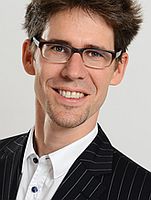Contact
Further Information
Fellow during the winter term 2019/20
Project: Translocal actors of knowledge ("translokale Wissensakteure") and translocalization techniques in the border dispute between Brazil and France in the Guyanas in South America
The purpose of the proposed fellowship at the Munich Centre for Global History is to carry out intensive discussions on the concept of translocality from interdisciplinary global-historical perspectives. With the spatial turn in mind, different concepts of spaces that transcend borders, limits, or boundaries, such as transnational, transcultural or transregional approaches, have contested the idea of container space. Going a step further, translocality and translocalization do not presume any given, confined entity such as a nation, culture, or region with a corresponding temporality of its own (as in national history, for example). Rather, the concepts assume space as the everyday environment from which actors (re)produce and transcend their spatiotemporal localization. Hence what is translocal is conceptualized as a spatiotemporal environment (in German "Um-Welt") that is permanently (re)produced and transcended. The relationship between space and time can be thought from new, less prestabilized perspectives. As such, the focus shifts to the (power) relations between actors and their environments on different scales, and to corresponding practices of dynamic localization, accommodation, and appropriation. Following its use especially in migration studies and anthropology, the concept of translocality was introduced into historical discussions by the Berlin-based Zentrum Moderner Orient (ZMO) in the 2000s.
In my recent research, I have been working with the concept of translocal actors of knowledge ("translokale Wissensakteure") and translocalization techniques in the border dispute between Brazil and France in the Guyanas in South America. One of the main goals is to introduce temporal and dynamic dimensions into these debates, which are characterized, like many others, by a focus on space. I thus ask how different actors situated in different localizations in the Americas and Europe, as well as those acting in between, have tried to (re)produce their spatiotemporal (trans)localization in order to use them in the dispute. During the arbitration procedure (1895/97–1900) led by the Swiss Federal Council (Bundesrat), different actors performed and used their (trans)localization in this way. To name just a few: some actors emphasized their progressiveness, their "history" or their "being on the spot" vs. the "imperial cartography" of the others; some performed their "objective" arguments-or to put it more concretely, argumentation based on "global science" and "international jurisdiction"-as opposed to "self-interested politics." The Swiss were chosen because of their supposed "neutrality." While some of these arbiters were criticized for "standing above things," others were accused of being associated with anarchist tendencies, and still others were blamed for not taking a clear stand. Both public and more private or confidential spaces and their exploitation had an important impact on the mode of deliberation. Moreover, "lines" and (non)linear dimensions played a crucial role within the argument-not only in demarcating borders, rivers, and coasts on the maps but also through the concept of linear histories that were presumed to unfold according to intrinsic laws and critics of nonlinear, "chaotic" proceedings. By investigating these and similar techniques of spatiotemporal (trans)localization, I am looking for representative traces of global modern spatiotemporalities.


